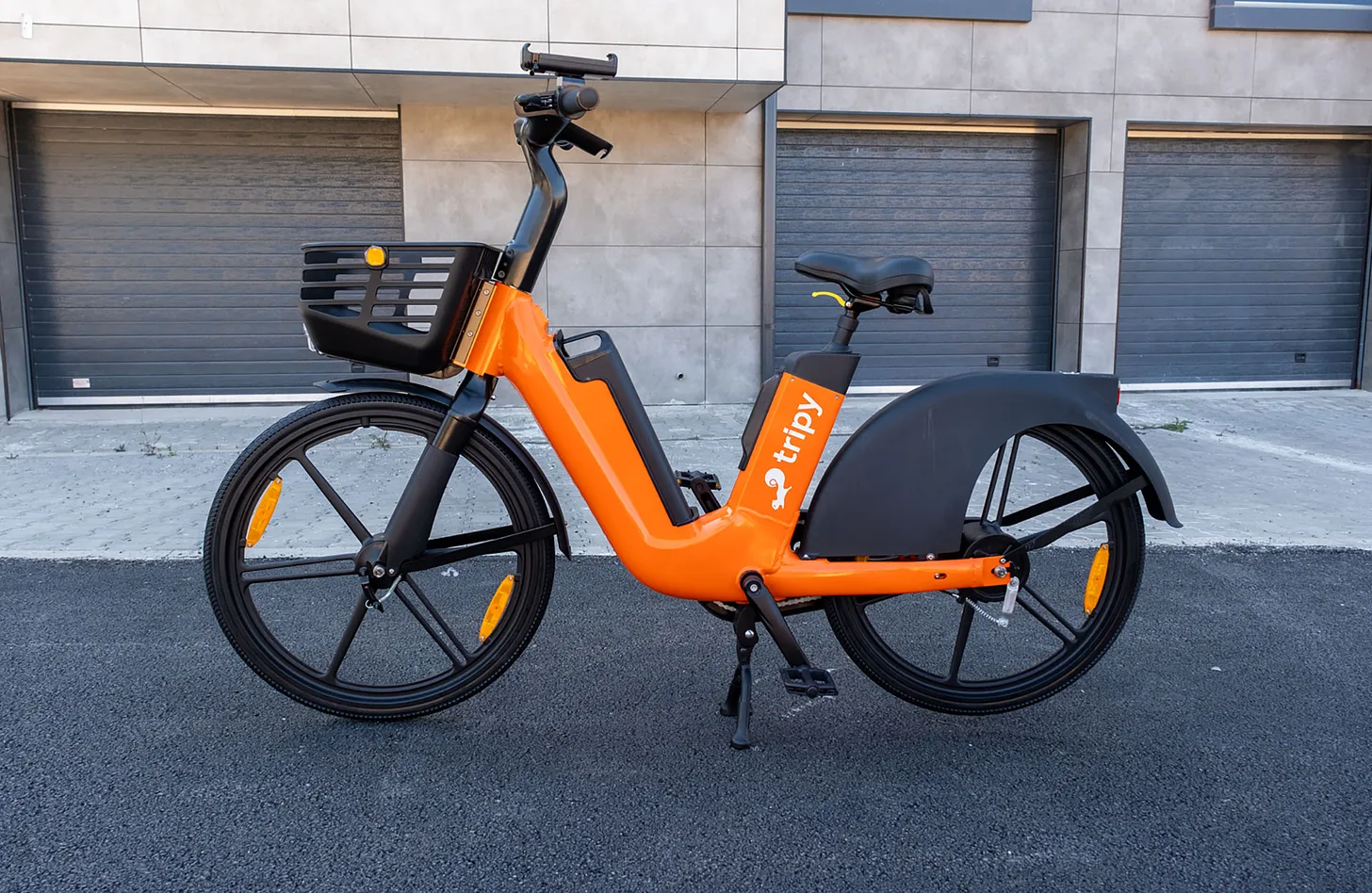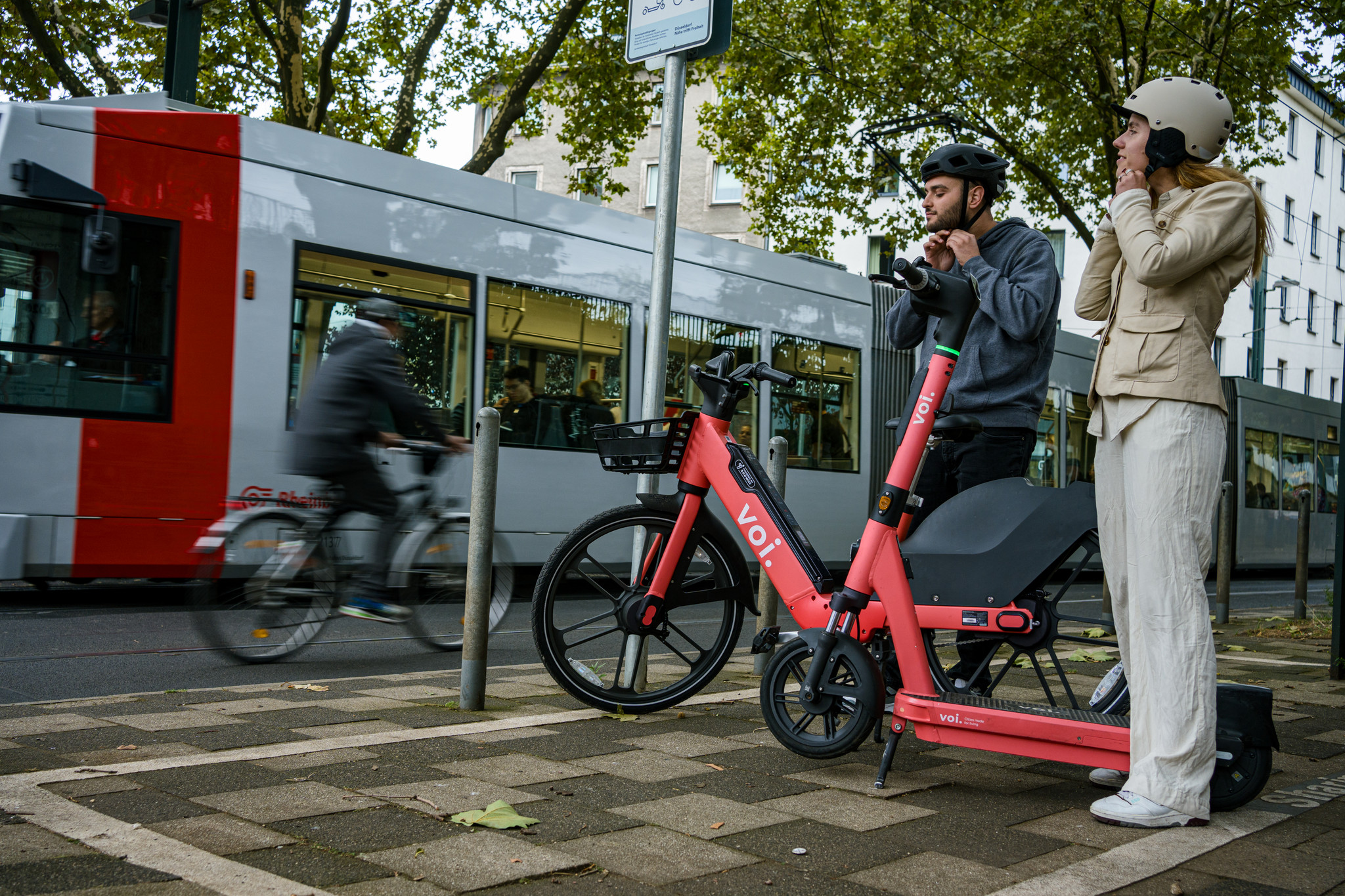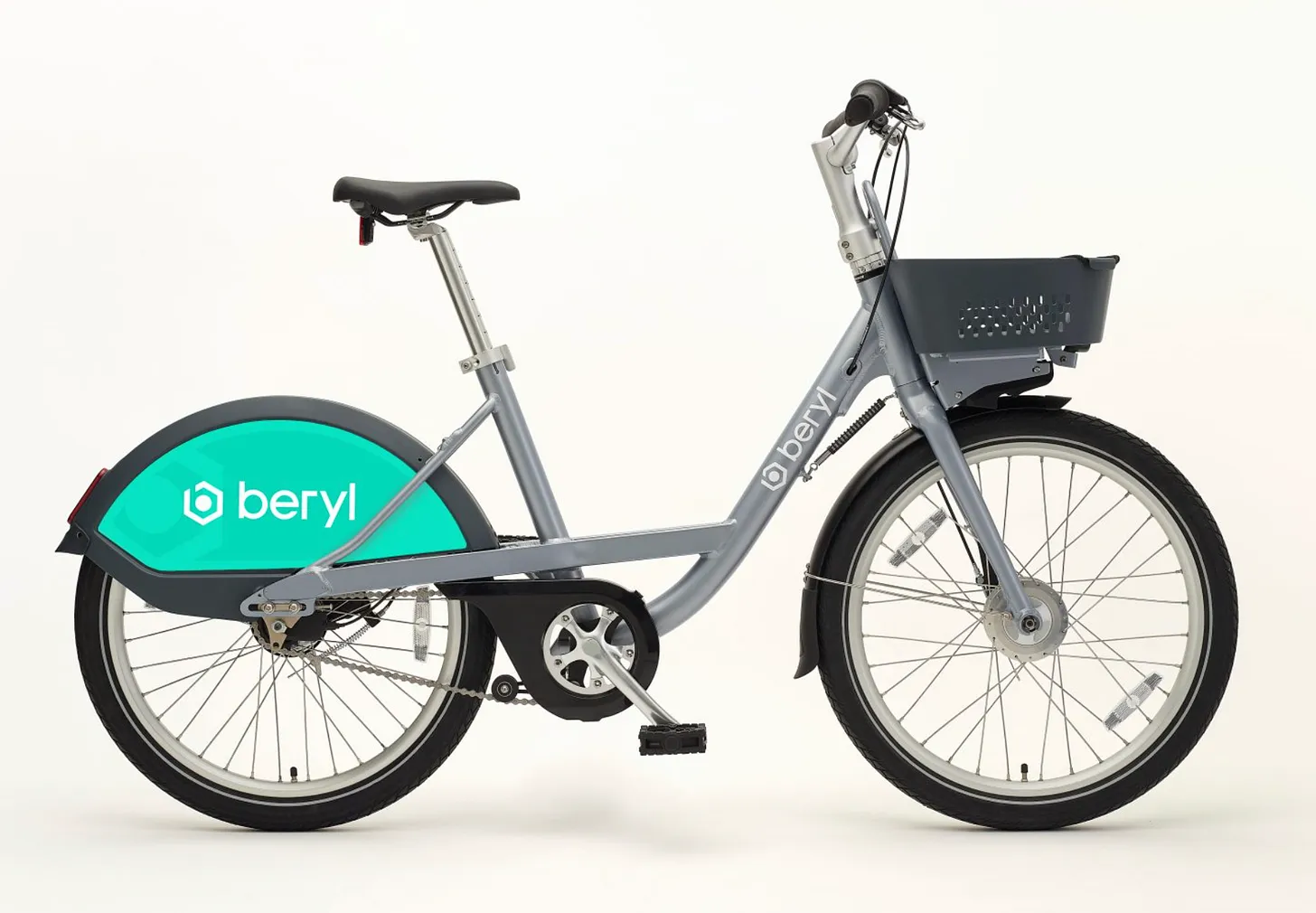Welcome to the Micromobility Newsletter, your weekly digest of important events and industry news in the world of personal transportation.

⏰ The clock is ticking to participate in the Rider’s Choice Awards. Following three months and countless ballots, the last elimination round is just around the corner, scheduled for this week. The ultimate winners will be decided through a popular vote and revealed via livestream at Micromobility World (RSVP here while it’s still free to register) on January 25th. Time is of the essence, so ensure you submit your votes without delay. 🏆
Also, be sure and check out our CES Recap series, exploring micromobility technology at the Consumer Electronics Show in Las Vegas last week. Part 1 and Part 2 take place on the show floor with lots of exhibitor interviews, while Part 3 features test riding at Segway’s off-site test track.
What You Need to Know Today
Shared micromobility startups Tier and Dott are planning to merge. Both companies are leading providers in Europe, and some of their existing investors have already committed funds to the new entity.

BYD - the world’s largest producer of plugin vehicles - has broken ground on a sodium-ion battery factory. BYD is investing 10B yuan ($1.4B USD) into the factory, which will produce batteries for electric scooters and micro vehicles.
Solid state battery technology is also advancing; QuantumScape delivered prototypes to automotive partners one year ago and is now receiving feedback. Endurance testing carried out by Volkswagen subsidiary PowerCo determined that solid-state-equipped EVs would be able to drive 500,000 km (311,000 miles) with virtually no loss of range.
Three US companies are collaborating to release fire-proof e-bike battery packs in early 2024. These batteries from Nanotech, Soteria, and Voltaplex rely on graphene-powered cells and other proprietary technology to mitigate fire risk.

The National Renewable Energy Laboratory (NREL) issued a ban on indoor charging or storage of electric mobility devices. The NREL’s fire marshal, Nicholas Bartlett, acknowledged that poorly made and uncertified batteries are at the root of the problem:
“The fires and explosions are attributed to a wide variety of causes such as mismatched chargers, overcharging, uncertified/Listed batteries, poor manufacturing quality, home made devices, etc. We cannot necessarily control what people purchase and use, but in some instances we are able to put restrictions on where and how an activity can be done”.
E-bike rebates are spreading rapidly! The city of Atlanta announced $1M in funding for a rebate program. It features a bigger rebate for cargo bikes, and will reserve 75% of the funding for low-income residents.
Even more impressive is the new subsidy announced by the French government, offering up to €2,000 towards the purchase of an electric bike. The subsidy is intended to promote cycling as a viable alternative to driving, and notably allows purchasing used bikes, as long as they’re sold by a professional outlet.
France’s military is also embracing e-bikes. The Battle Lab Terre innovation group announced completion of the first phase of testing with two-wheelers made by LMX Bikes, a french high-performance e-bike specialist.

The city of Los Angeles is experimenting with Universal Basic Mobility via a “mobility wallet” program, the largest such initiative in the US to date. The program provides $150 per month for residents to spend as they choose on a variety of transportation options, but it cannot be spent on the cost of owning or operating a car.
CAKE Motorcycles issued a partial recall of some Kalk electric motorcycles sold on the US market between 2018-2023. The recall comes after a Kalk unit caught fire while charging at a dealer in South Korea, and an investigation determined that some battery packs contained a faulty chemical composition that can overheat while charging.
The United Arab Emirates is working to de-carbonize last-mile deliveries and is relying on Eco Way to provide 30,000 electric mopeds. The Dubai-based startup is currently testing 45 delivery two-wheelers that utilize swappable batteries and charging stations.

Skarper, a British startup, is working with Red Bull Advanced Technologies on a portable drive system. This unique device attaches to a bicycle’s disc brake and delivers power through the rotor, and can be installed or removed in just a few seconds.
Twitter | YouTube | LinkedIn | Instagram | Blog | Podcast

.svg)
%2Bcopy.jpeg)


.svg)












